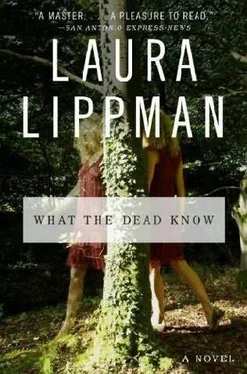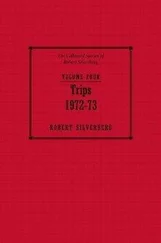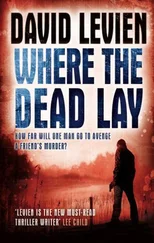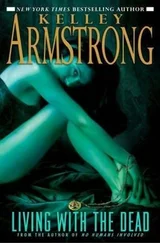“It really would be better if you waited…We’re not sure, in fact-”
“No, no, I could never wait.” Then she got it. “You think she might be a liar?”
“We think she’s damn odd, but she knows some things that only someone with intimate knowledge of the case could have, and we are developing some new leads, but it’s all very tentative.”
“So even if she’s not my daughter, she almost certainly knows something about her. And what of Sunny? What has she said about her sister?”
A pause, the kind of grave pause that told her the man on the other end of the phone was a parent. “She was killed soon after they were taken. According to this woman.”
In sixteen-plus years of living in Mexico, Miriam had never once suffered a stomach ailment. But at that moment she felt the sharp, stabbing gut pain that was the hallmark of turista . Of all the things she had allowed herself to imagine for thirty years-the discovery of a grave, an arrest, the end of the story and yes, in some secret chamber of her heart, the impossible possibility of reunion-this had never occurred to her. One, but not the other? She felt as if her body might break down under the strain of trying to harbor such polarized feelings. Heather, alive, and the promise of answers after so many years. Sunny, dead, and the horror of answers after so many years. She glanced at her expression in the tin-framed mirror over the primitive pine buffet, expecting to see it bifurcated, the mask of comedy and tragedy combined in one face. But she looked as she usually did.
“I’ll be there. As soon as humanly possible.”
“That’s your choice, of course. But you might want to let us check out a few of these leads. I’ve got a detective in Georgia, working on something. I’d hate for you to come all this way-”
“Look, there are only two possibilities. One is that this is my daughter, in which case I cannot get there soon enough. The other is that this is someone who knows something about my daughter and is exploiting the knowledge for whatever reason. If that’s so, I want to confront her. Besides, I’ll know. The moment I see her, I’ll know.”
“Still, a day won’t change much, and if we should discredit her…” He didn’t want her to come, for whatever reason, not yet, which only strengthened Miriam’s resolve to be there as soon as possible. Dave was dead, she was in charge. She would behave as he would, if he were still around. She owed him that much.
Now, not even twenty-four hours later, wheeling her luggage past the hideous shops in the airport, Miriam was rethinking her certitude. What if she didn’t know? What if her desire to see her daughter alive tainted her maternal instinct? What if maternal instinct was bullshit? There had always been those eager to disavow Miriam’s motherhood, people who unthinkingly and unfeelingly demoted her because she had no biological claim on the children she was raising. What if they were right and Miriam was missing some key sense? Did the very fact that she had bonded so thoroughly with children who were not her biological kin prove how suggestive she was by nature? She remembered a cat they had owned, a superb calico mouser. Spayed, the cat had never thrown a litter. But one day she had discovered a little stuffed seal of Heather’s, a repulsive thing made of actual seal fur, a gift from Dave’s clueless mother. If the seal hadn’t come from his mother, Dave never would have allowed Heather to keep it; he had made Miriam get rid of her beaver coat, a remnant of her Canadian life, passed down from her grandmother, and far more defensible. But all sorts of exceptions were made for Florence Bethany. The cat, Eleanor, discovered the seal and adopted it, dragging it around by the neck as she might have carried her own kitten, endlessly washing it, hissing at anyone who tried to take it from her. Eventually, of course, she ruined it, her wet, rough tongue removing all the hair until it was something truly hideous, a fetal bit of canvas.
What if Miriam’s instincts were on a par with the calico mouser’s? Having learned to love another woman’s children as her own, was she capable of claiming any child, if she wanted to believe badly enough? Was she going to grab a stuffed seal by the neck and pretend it was her kitten?
In the year before she disappeared, Sunny had asked more and more questions about her “real” mother. She had been a typical adolescent at the time, so moody and temperamental that the family called her Stormy, and she kept tiptoeing up to the edge of the story, then retreating. She wanted to know. She wasn’t ready to know. “Was it a one-car accident?” she asked. “What caused it? Who was driving?” The sweet, polite stories they had told for so long were now lies, plain and simple, and neither Miriam nor Dave knew how to navigate that change. Lying was the greatest sin in a teenager’s eyes, the only excuse needed to reject all parental rules and strictures. If they had armed Sunny with the evidence of their deceit and hypocrisy, she would have been impossible. But, eventually, she would have to know, if only because there was an object lesson in her mother’s mistakes, a reminder of how fatal it can be not to confide in a parent, to be proud in the wake of a mistake. If Sally Turner had been able to go to her parents in her time of need, then Sunny and Heather might never have come to be the Bethany girls. And as much as Miriam hated that idea, she knew that it would have been for the best. Not because of biology but because if the girls’ mother had lived, they might have lived, too.
The police had looked long and hard into the father’s family, but his few remaining relatives seemed to neither know nor care what had happened to that violent young man’s offspring. He was an orphan, and the aunt who raised him had disapproved of Sally as much as Estelle and Herb had disapproved of him. Leonard, or Leo. Something like that. It was impossible to single out any indignity in the aftermath of the girls’ disappearance, but Miriam had disliked the keen interest in the girls’ parentage even more than the probing into her licentiousness. And Dave, who usually wanted every avenue explored, even the most crackpot theories, had been driven insane by that line of inquiry. “They are our daughters,” he said to Chet repeatedly. “This has nothing to do with the Turners, or that idiot who did nothing more than a stray dog might have done. You’re wasting your time.” He was almost hysterical on the subject.
Once, years earlier, someone-a friend until this incident, which revealed that the person was not a friend and had never been one-had asked Miriam if the children could be Dave’s, biologically, if he had impregnated the Turners’ daughter during some long, clandestine affair and they had all conspired to concoct this elaborate story when she died, from whatever cause. Miriam had gotten used to the fact that no one would ever see a likeness between her and the girls, but she found it strange that this woman thought she could see Dave in them. Yes, his hair was light, but bushy and curly. Yes, his skin was fair, but his eyes were brown, his frame completely different. Yet, time and time again, people had said, Oh, the girls favor their father , which created a moment beyond awkward, for Miriam did not want to be put in the position of disavowing the girls in their hearing, but nor could she bear for the misinformation to stand. They are like me , she wanted to say. They are so like me . They are my daughters, and I have shaped them. They will be better versions of me, strong and more self-aware, capable of getting what they want without feeling selfish or greedy, the way women of my generation did.
Four hours. Four hours to kill in an airport and then almost three hours for the flight itself, and she had already been traveling for almost eight hours-up at 6:00 A.M. for the car, arranged by Joe, that took her to the local airport, then a long delay in Mexico City. There were good books in the airport bookstore, but she could not imagine focusing on any of them, and the magazines seemed too trivial, too outside her existence. She didn’t even know who most of the actresses were, living as she did without a satellite dish. In face and figure, they looked shockingly alike to Miriam, as indistinguishable from one another as Madame Alexander dolls. The headlines screamed of personal matters-engagements, divorces, births. Give Chet credit , she thought. He had kept so much from local media. How docile reporters had been, how circumspect. Now the whole story would come out-the adoption, her affair, their money woes. Everything.
Читать дальше












